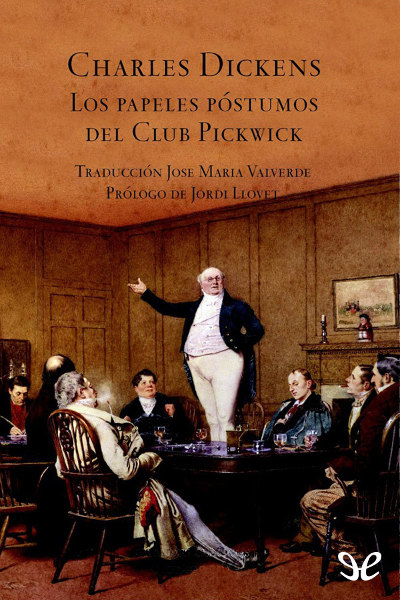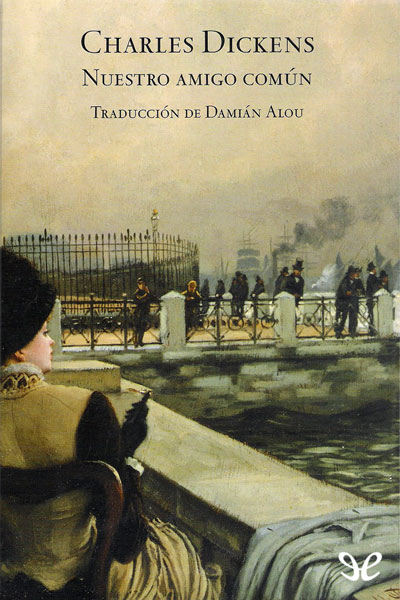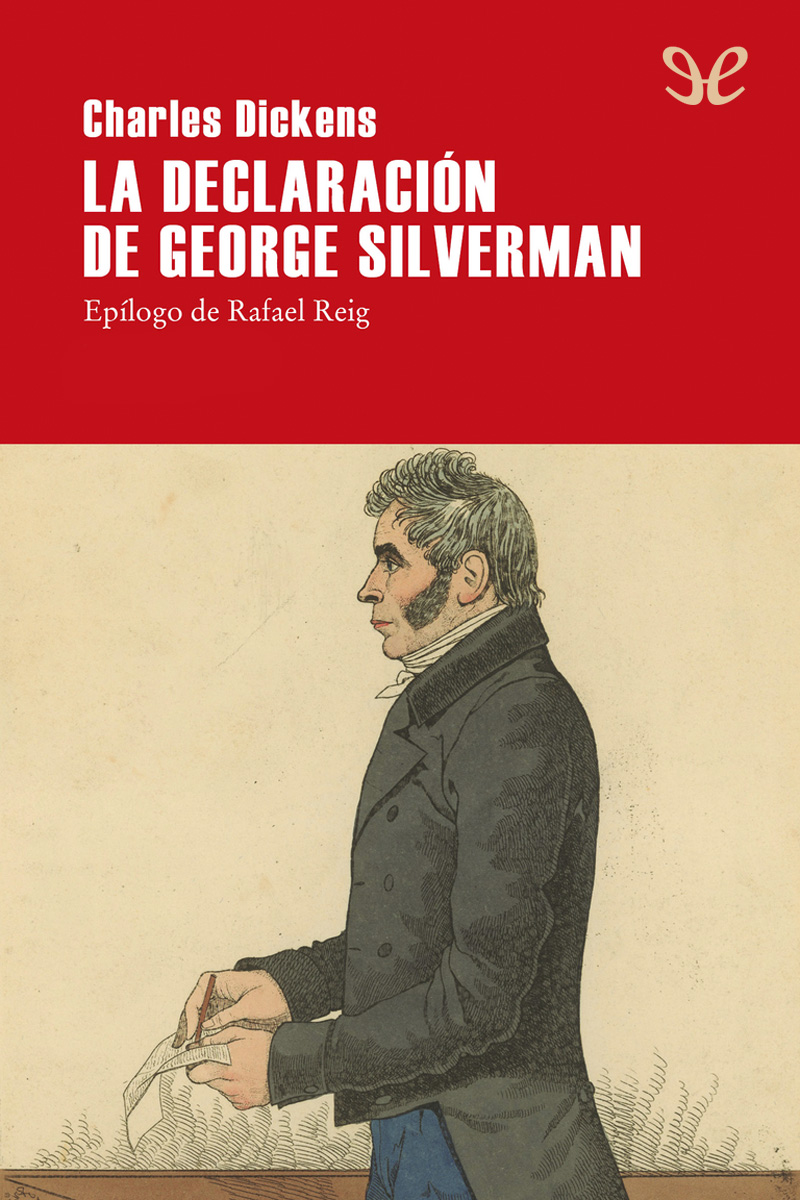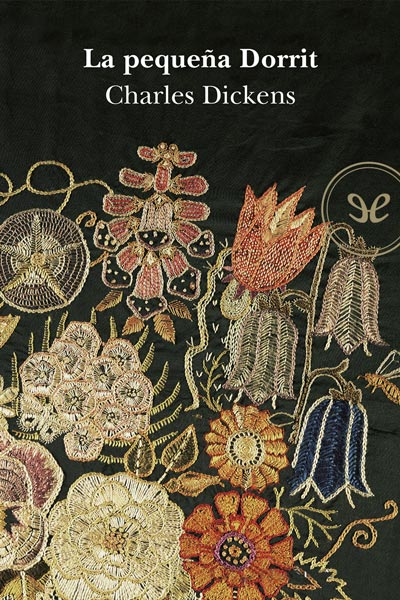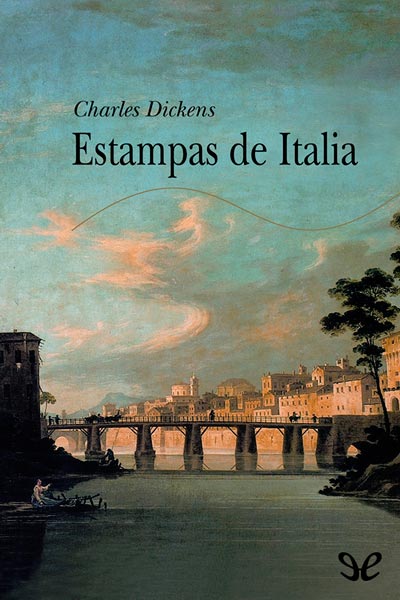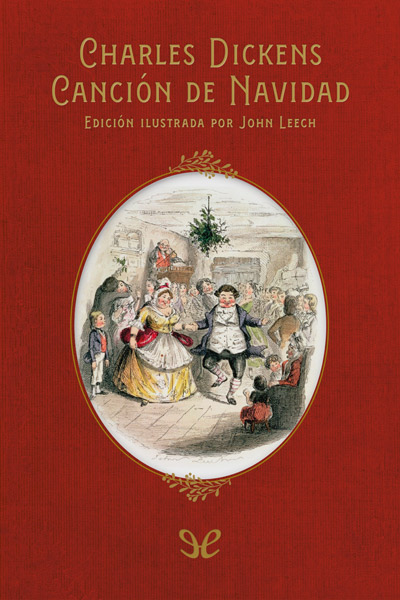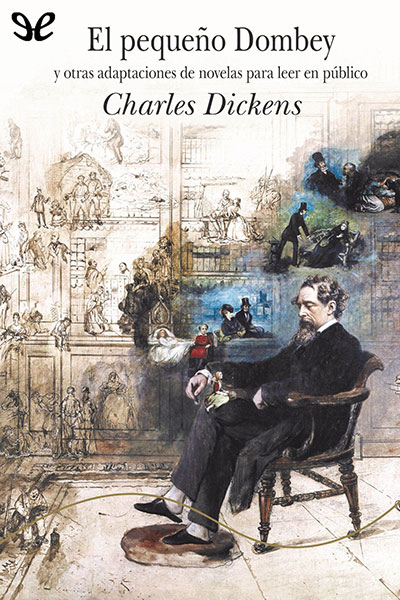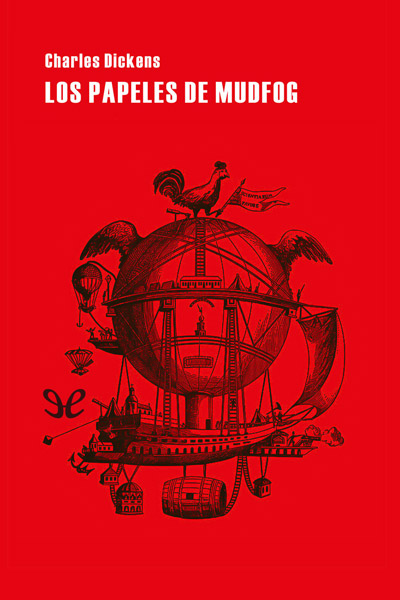oleebook.com
Els papers pòstums del club de Pickwick de Charles Dickens
de Charles Dickens - Género: Drama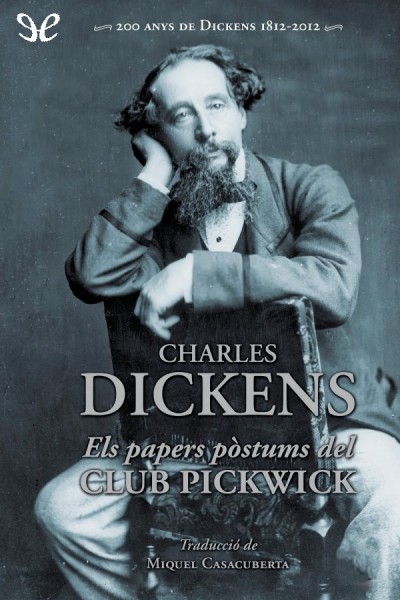
Sinopsis
Samuel Pickwick, un jubilat acomodat que ha fet alguna incursió en el camp de la investigació científica, emprèn un viatge per observar la societat humana, acompanyat de tres amics i membres del seu club: Nathaniel Winkle, Augustus Snodgrass i Tracy Tupman. El seu objectiu és anar anotant tot el que veuen i fer arribar aquestes notes al club del qual és fundador. La ingenuïtat de tots quatre els fa caure en aventures ridícules i els converteix en presa fàcil dalguns entabanadors, entre els que destaca el personatge dAlfred Jingle. Posteriorment Pickwick contracta com a criat Samuel Weller, un noi dextracció humil, bon coneixedor de les maneres de viure de les classes populars, que de mica en mica va guanyant protagonisme i arraconant els altres tres acompanyants de Pickwick, que no oferien un contrast prou marcat amb el personatge principal. La presència de Samuel Weller també enriqueix enormement la varietat de registres lingüístics, i, gràcies a la seva relació amb el seu pare i la seva madrastra, crea petites trames paral·leles sovint de molta comicitat. Paral·lelament a la coneixença amb Samuel Weller, es produeix un malentès que acaba conduint tota la trama posterior. La dispesera de Pickwick interpreta erròniament que li està proposant matrimoni, i posteriorment lacabarà denunciant per incompliment de promesa, influïda per dos advocats sense escrúpols. Lhonradesa de Pickwick, la seva negativa a actuar contra els seus principis, fan que perdi el plet i acabi en una presó de deutors. Durant tota la trama es van intercalant històries paral·leles, com El retorn del convicte, La història del captaire, etc., que mantenen un vincle feble amb la història principal, presentades com a simples lectures dels protagonistes o narracions que fa un personatge secundari.
Libros Recomendados - Relacionados
Reseñas Varias sobre este libro
Have you read The Pickwick Papers? It does seem to be the one work by Charles Dickens which is sadly neglected by many readers.
"The Pickwick Papers" was originally published in 19 monthly magazine instalments, from March 1836 to October 1837, this last being a double issue. They were then reissued in a volume as The Posthumous Papers of the Pickwick Club in 1839 when Dickens was still only 25. They comprise humorous sketches, themselves interspersed with incidental tales, such as "The Goblins who stole a Sexton" told by minor characters.
This is where the young Charles Dickens began to cut his teeth as a writer. Dickens at the time was relatively unknown and quite poor. He was 23, and had just written various sketches about London life for magazines. The publishers Chapman and Hall asked him to write pieces in a similar vein to accompany some plates by Robert Seymour, an established illustrator. These plates were of bumbling members of a sporting club getting themselves into various predicaments. Dickens's brief was to connect them by providing a comic story, and the two parts would then form a "picture novel" - a popular entertainment of the time.
Dickens was quite excited by the idea, but straightaway started to alter the plan. In his own words, he
"objected... that it would be infinitely better for the plates to arise naturally out of the text; and that I would to take my own way, with a freer range of English scenes and people, and was afraid I should ultimately do so in any case, whatever course I might prescribe to myself at starting."
One can only imagine how presumptuous this must have sounded! Seymour was 38 years old and had already illustrated the works of Shakespeare, Milton, Cervantes and Wordsworth. He was a talented artist who had been exhibited at the Royal Academy over a decade earlier when he was just 24. He was on his way to becoming the President of the Royal Academy, and thought to be one of the greatest artists since Hogarth. Despite all this, Dickens got his way, and led the episodes by the story. He evidently must have a been a charismatic and forceful character even at this young age!
Now of course we know the true extent of the brilliance of the man. Ironically and tragically Seymour committed suicide before the second issue of "The Pickwick Papers" was published. He had a few drinks with Dickens, delivered his latest sketch of "The Dying Clown" to the publishers, then went home and shot himself. There is a fascinating back-story attached to this but this is not the place to tell it.
Robert Buss was then commissioned to illustrate the third instalment, but his work was not d by Dickens and the remaining instalments were illustrated by Hablot Knight Browne who took the name "Phiz". This was to accompany the penname Dickens had already made his own, "Boz". Hablot Knight Browne went on to illustrate most of Dickens' novels.
The main characters in "Pickwick" are Mr. Samuel Pickwick himself, "a gentleman of independent means; a retired man of business." He is accompanied by the "too susceptible" Mr. Tracy Tupman, also mature in years, but inclined to fall in love at the drop of a hat. The other two members of the travelling party are younger; "the sporting" Mr. Nathaniel Winkle and "the poetic" Mr. Augustus Snodgrass. Their aim is to travel throughout the English countryside researching "the quaint and curious phenomena of life". They are to report back at intervals on "authenticated accounts of their journeys and investigations; of their observations of character and manners; and of the whole of their adventures", to the club's headquarters in London. They stay at coaching inns, and their adventures as they travel by coach through London, Rochester, Ipswich, Bath, Bristol and Birmingham form the basis of this rollicking ride.
Satire and farce continue to underpin the whole of the narrative, as the bumbling quartet become embroiled in ever more ludicrous situations. The confidence trickster Alfred Jingle appeared in the very first issue. He repeatedly landed the Pickwickians in trouble with his devious tricks, and whenever he pops up in the narrative the reader knows they are in for a particularly droll episode. In the fourth issue, (or chapter 10) the astute and wily cockney Sam Weller is introduced, to be taken on as Pickwick's servant. He provides a delightful counterpart to Pickwick's idealistic naivety.
There about a dozen other important minor characters, and literally hundreds more comic cameos scattered throughout the book. This is no exaggeration, incidentally. The book has 57 chapters, and there are maybe 5-10 of these cameos in each; delightful thumbnail sketches of characters with exaggerated personality traits. It would indeed be a lengthy exercise to detail all these numerous comic characters and situations! The Pickwick Papers is by definition episodic; a linked sequence of events. If anything it is character-heavy and in danger of sinking under their weight. And given such a dodgy start to the enterprise, it is surprising that the whole can still be read and enjoyed by the modern reader.
Each of the 19 issues contains either 2 or 3 chapters, and it must have been incredibly frustrating for Dickens, that he could neither rewrite nor withdraw any part of them. This was however the regime and pressure that he had to work under for most of his life. Each chapter is headed by a description of the following events. Typically though, in what was to become a favourite style of Dickens, this is written so obliquely that the reader is not entirely sure what is actually going to happen even then.
In addition to this workload, from February 1837 onwards, Dickens was also producing monthly episodes of "Oliver Twist" at the same time! Whenever the reader feels that the action is sagging a little, or that Dickens' writing is becoming a little overblown, it is as well to remember the constraints of producing work at such breakneck speed, without any possibility of editing. It would be most unfair to judge it by comparison with other novels of the time - or even Dickens' own future novels - as this is not how it was conceived.
Chapman and Hall printed only 1000 copies of the first monthly instalment, but by the end of the serial 40,000 copies were being printed. As soon as the character of Sam Weller was introduced, sales began to pick up, and he became enormously popular with the reading public. So much so, that his image was popular outside the stories themselves, much as Pickwick himself is for present day readers. For which of us now is not familiar with an image of Pickwick, on everything from Christmas cards to tins of biscuits?
Dickens is often criticised for his "inaccurate" rendering of the cockney accent, and Sam Weller's verancular and that of his father is probably the first time we see this. But read this exchange during a trial,
"Do you spell it with a 'V' or a 'W'?" enquired the Judge. "That depends upon the taste and fancy of the speller my lord," replied Sam. "I never had occasion to spell it more than once or twice in my life, but I spells it with a 'V'."
Or later, when Mr Weller senior is sorting out probate and dealing with the bank after a will. He is instructed to wait at "a part of the counter above which was a round black board with a large 'W' on it" - the initial letter of the deceased. He says, "There's somethin' wrong here. We's our letter - this won't do."
On both these occasions the confusions between the two letters is used to increase the comic effect. I personally think Dickens knew exactly what he was doing. He was well enough acquainted with all walks of life in London not make a "mistake"!
The Pickwick Papers in serial form were published at a very eventful period of Dickens' life. During the month issue 2 was published, not only did the illustrator Seymour commit suicide, as mentioned, but Dickens himself married Catherine Hogarth. For issue 11, his first son Charley was born, issue 12 came at the same time as the first instalment of "Oliver Twist" (again in serial form). For issue 13 the couple moved house to Doughty Street, and during April when issue 14 was out, Catherine's sister (with whom it is fairly sure Dickens was in love) died. With this whirlwind of a year Dickens had set a precedent for the way he would live his life. He was a writing phenomenon; a true workaholic. Between his writing and his performances on stage, he eventually worked himself to death.
What's more, the basis for his work is all here in "The Pickwick Papers". The love of caricature and the grotesque, the drama and the humour, the sentimentality and the pathos. There is also the social conscience, the indignant portrayal of the absurdity and corruption not only of individuals, but of the machinery held in such esteem by civilised democratic societies. Dickens is never afraid to poke fun at anything, however august and "honourable" the person or the institution.
Lawyers, politicians and even some churchmen are portrayed either as pompous figures of ridicule or unscrupulous charlatans. Medical men are "sawbones" who use "secondhand leeches", new "men of science" are gullible fools. The debtors' prison is jampacked with people who have ended up there through no fault of their own, and have no prospect of ever getting out. The beloved "Artful Dodger" of "Oliver Twist" is here in embryonic form, as Sam Weller. Dickens' passion for justice, for seeing everything in its true colours and laughing at it, is here already, and I love him for it. His talent is ripe and just waiting to be developed into some of the greatest novels in the English Language. All this, from an author in his early twenties.
For those who think my star rating is generous, that this is one of his weaker "novels", I would say just look at some extracts. Read the episode about the "refractory mare." Or Pickwick's trial. Or the incident with the "lady in yellow curl papers." Or account of the Pickwickians slithering about on the ice. His style for writing farce is already perfect; it could not be improved. Yes, the structure is loose and "The Pickwick Papers" is overlong. The first part of this review explains why.
But reading through "The Pickwick Papers" in its entirety provides us with a unique opportunity to follow a piece of history. It started as a minor piece by a relatively unknown young writer, yet in some ways it can be seen as the chronicle of his journey. By the end "The Pickwick Papers" was a huge success, both the work and its author taking Britain by storm. Dickens's life would never be the same again; he achieved celebrity status with this work. Agreed, it is a lesser work compared with the whole canon. But if you have already enjoyed reading any Dickens, then please do not miss out on the true gems in this remarkable collection.19th-century-ish charles-dickens classics ...more280 s8 comments Vit Babenco1,557 4,339
The Pickwick Papers was the first novel by Charles Dickens but Ive read it last. I was always afraid to start but once I did it proved to be a real pageturner for me.
There sat the man who had traced to their source the mighty ponds of Hampstead, and agitated the scientific world with his Theory of Tittlebats, as calm and unmoved as the deep waters of the one on a frosty day, or as a solitary specimen of the other in the inmost recesses of an earthen jar.
The peculiar and effervescent sense of humour is inimitable and the language is the vintage wine.
And I was surprised to find out that quite a few of the inns the clubmen stayed in are still functioning.255 s Ahmad Sharabiani9,564 148
The Posthumous Papers of the Pickwick Club = The Pickwick Papers, Charles Dickens
The Pickwick Papers was Charles Dickens's first novel. He was asked to contribute to the project as an up-and-coming writer following the success of Sketches by Boz, published in 1836.
The novel's main character, Samuel Pickwick, Esquire, is a kind and wealthy old gentleman, the founder and perpetual president of the Pickwick Club.
To extend his researches into the quaint and curious phenomena of life, he suggests that he and three other "Pickwickians" (Mr Nathaniel Winkle, Mr Augustus Snodgrass, and Mr Tracy Tupman) should make journeys to places remote from London and report on their findings to the other members of the club.
Their travels throughout the English countryside by coach provide the chief theme of the novel.
A distinctive and valuable feature of the work is the generally accurate description of the old coaching inns of England. (One of the main families running the Bristol to Bath coaches at the time was started by Eleazer Pickwick).
???????? ??? ??? ?? ?????: «???????? ???? ??? ???»? «?????????? ??? ???»? «?????????? ???? ??? ???»? ???????: ????? ?????? ????? ?????? ????? ??? ??????? ??? ???? ??? 1987??????
?????: ???????? ???? ??? ???? ?????: ??????? ?????? ???????? ??? ????? 1364? ?? 436?? ????? ????????? ?????? ?? ????????? ???????? - ??? 19?
?????: ?????????? ??? ???? ?????: ????? ?????? ??????? ?????? ??? ????? 1394? ?? ?? ???? ???? ???? 9786002295095? ???? ??? ?? 9786002295101? ???? ??? ?? 9786002295118?
?????: ?????????? ???? ??? ???? ?????: ??????? ???????????? ?????? ???????? 1396? ?? 192?? ????? 9786006608587?
???? «??? ???»? ???? ???? ? ??????? ??? ?? ??? ????? ???? ? ??????? ????? ?? ????? ?????? ???? ???? ?????? ? ???????? ??????? ????????? ?? ?? ?????? ?? ???? ??? ???? ???????: «???????? ?? ??????»? «???? ??? ?? ??????» ? ....? «??????? ???? ??? ???? ?? ???????? ????»? ...? «??????????? ??? ???» ?? «???? ?????» ?? ???? ? ???? ????? ????????? ? ?????? ??? ??????? ????? ??? ?? ???? ???? ????? ??? ?? ???? ?????? ?? ?? ?????????? ??????? ????? ??? ??? ?? ??? ? ??? ????? ??? ??????? ?? ??????? ?? ????? ???? ?????? ????? ???? ?????????? ???? ??? ???? ??????? ????? ??????? ?????? ??? ?? ?? «?????» ?????? ?? ???? ??? «?????????? ??? ???» ??? «?????????? ??? ???» ???? ??????? «??????????» ???? ?? ?? ???? ??? ?????? ????? ???? ???? «????» ??? ?? ????? ? ????? ????? ?? ???? «??? ???»? ? «?? ?????»? ??? ??????
????? ?????? ????? 08/08/1399???? ???????? 26/06/1400???? ???????? ?. ??????? Always Pouting576 886
Oh god this was such a long read, the problem is I didn't realize going into it that Charles Dickens originally published this as a series over time and so I read the whole freaking thing at once and honestly there's only so much of this one can read at once and still enjoy. The writing itself was really good and Dickens is really witty. I found all of it really funny and amusing and I see why people would have d it. I don't think I myself could enjoy it as much because it just felt a TV show where you tune in every other week or something to see what your favorite characters are doing, and one of those sitcoms where it's really just a way to fill time. The Pickwick club just seems to drink and listen to stories or get into trouble that's the whole plot for I think 900 pages. It gets old really quick and it's not what I read for so it didn't do anything for me. I think if I didn't have TV or comics it would have appealed to me much more. I did really enjoy Joe though because he's just fat and sleeps constantly and causes trouble which is great. The first thing that happens with Mr.Jingle, originally before he takes off, was pretty intriguing also. The rest of it barely kept my attention. I really want to Dickens but so far I can't say I do very much.188 s Emma115 52.7k
3.75classics victorian179 s Lisa1,066 3,311
Same procedure as last year, Mr Dickens?
Same procedure as every year, My Dear Reader!
Well, then. I officially declare the December Dickens challenge completed, and according to tradition, The Most Recently Read Dickens knocks the Previous Favourite off the pedestal.
As always, the Dickensian spirit manifests itself mainly in the minor characters and the villains. I would give my soul (to the care of a trustworthy person of Mr Pickwick's calibre, under no circumstances to lawyers Dodson and Fogg!) to listen in on some additional conversations between Samivel Veller and his dear father, the hater of vidders and lover of a proper eddication. If the Wellers add colour, heart and soul to the picaresque adventures of the Pickwick Clubbers, Mr Jingle and Mr Trotter are their perfectly drawn antitheses, as is the dear Mrs Bardell, whose real fainting in the debtor's prison showed that a well orchestrated fake fainting has a tendency to be much more useful and effective than the feeble original.
Mr Pickwick himself is a descendant of the great Don Quixote, and the windmills of Chancery are harder to fight than most dragons, and they clearly demand a sequel - which promises to be a bleak story.
Sam Weller is outperforming Sancho Pansa in wit and energy, and most definitely is his equal in loyalty and love.
What more can be said that hasn't been said a thousand times before, regarding Charles Dickens' unique universe? What can be added except the inevitable Oliver Twist quote: "Please Sir, I want some more", expecting a rich literary meal rather than a thin gruel, no matter which novel will knock this one off the favourite place next year?
I could join Fernando Pessoa, claiming one of the great tragedies of my life now being that I can never again enjoy the pleasure of reading the Pickwick Papers for the very first time. But that will never do! Another Dickens is safely stored in my inner treasure chest where the reading pleasures of Christmasses past are located.
To the Ghost of Christmas Yet to Come! Some more!charles-dickens154 s Baba3,770 1,176
The well penned chronicles of the members of the Pickwick Club a steady stream of comedy, intrigue, dalliances, crime, debtors prisons and love a truly astounding feat for a first novel, but Charles Dickens did go on to write so much more, so just a Three Star read for me. 5 out of 12. I was probably disadvantaged having read the s of Little Dorrit and Nicholas Nickleby amongst others, in the weeks prior to reading this.
2009 readclassic134 s Luís2,092 881
Mr Pickwick is a philosopher. This fact is what Dickens calls him, who seems to imprint his thoughts on the philosopher's actions.
He attacked several institutions or customs of England in the 1830s in this book of "gentlemen" (esquires).
- It is a concrete indictment against the prisons for English debts, although one can circulate freely with women and children. But wealthy prisoners are well off, and the poor can starve without mercy.
In Volume III, Dickens also shows the advantage of forgiveness and the philosopher's help over Miss Bardell over blind vengeance.
- Finally, he shows Winkle, an uncompromising father, that marriages of love, even with little money, bring more happiness to everyone than arranged marriages at that time.
But there are some earthy passages, such as a Paris duel, which, as we know, the English are fond of;
one will also notice the versatility towards "the good side" of the characters when, on many occasions of annoyance, the gentlemen who respect themselves must avoid the worst: it generally ends in an invitation to drink, in the joy and good humor!
I want to point out Sam's character, Pickwick's servant, who has a great personality, a lot of humor, and a great bond with his coachman father and master Pickwick.
Finally, there are the Pickwickians, young men a little lost that our philosopher protects. This one is delighted when they manage to fly off on their own.
I found volume III much more lively and enjoyable because Dickens has finally found his "cruising speed"!british-literature charles-dickens e-4 ...more117 s Darwin8u1,638 8,814
what was over couldn't be begun, and what couldn't be cured must be endured;
? Charles Dickens, The Pickwick Papers
This book morphed a couple times in my brain. It started off a bit uneven, filled with vignettes and sketches that seemed to anticipate the later genius of Dickens and even presented several shadows of future books and stories. After 100 pages I figured I would have another 700 pages of various Pickwick club digressions. There would be interesting characters (Sam Weller, Alfred Jingle, etc).
The narrative started to bog down, however, during the next couple hundred pages. The book had little velocity and the digressions seemed to have stalled, but then something happened. Dickens absolutely found his genius. It is interesting to behold a great author find his voice. I'm not just talking about any author or any voice. It is amazing to see Dickens find that genius balance between characters, plot, social commentary/satire, and humor. It was watching a bird hatch, a butterfly emerge from its chrysalis. More than the story, which ended very well, the book is worth the effort for what it shows about Dickens. This isn't the first Dickens I'd read, but after you've read a bunch of Dickens, I'd definitely read this just to soak in Dickens growth and his views on friendship, marriage, lawyers, and debt.2014108 s Carolyn Marie Castagna309 7,403
Oh Dickens!
Reading this book was quite the journey! There were moments when I loved it, and there were moments when I didn't.
It was a joy to see the charm of Dickens take shape in this book. His humor was wonderful as expected, and his ability to create unique caricatures was utterly charming!
Although this book didn't have much of a plot, it was very fun to watch all of the different adventures and misadventures unfold.
Since this book was originally serialized, it felt very episodical. At certain points this type of storytelling was exciting and fun, but overall I was missing the structure of one solid plot line.
I feel that the best way to read this book is as if it was in fact a periodical. I think my own enjoyment would have been much greater if I read it that way. Dickens didn't intend for this story to be read as a novel, so I do acknowledge that.
My biggest gripe with this book is that it is VERY (white) male-centric. The women don't really do much except faint, cry, or "become hysterical." They honestly felt silly objects for the men to have very minor interactions with. This is a common occurrence when reading classics written by men, which is a sad truth. The good thing is that there are many "classic" male authors who do great justice to their female characters. Dickens in-fact created some of the most iconic and complex female characters in literary history, such as Miss Havisham and Estella.
All in all, it was wonderful to read Dickens' first "novel," but I wouldn't recommend starting with The Pickwick Papers if you're new to Dickens.
I can't wait to fully discuss The Pickwick Papers with Emma during our second Dickens vs. Tolstoy debate! The live show will be on Emma's (@emmie) channel on April 3rd at 2pm EST! SO EXCITED!classics-i-ve-read80 s MJ Nicholls2,101 4,441
The middle classes in this country still aspire to some half-baked bucolic idyllrenting a farmhouse, living off the land, swinging on a hammock reading Balzac while buxom farmlasses frolic in the Devonshire sun. The reality? The work involved in milking cows, shearing sheep, fattening chickens requires the brawny pluck of a youngster, not the snoozy disregard of the doddery, and those farmhouse repairs wont repair themselves, those bills wont pay themselves . . . until the call of the one-bedroom flat in the city becomes impossible to ignore. Unless youre rich enough to hire lackeys, in which case, the vida loca awaits! This is a rambling and rambunctious comedic debut from the soon-to-be Bard of Blighty, rich in top-flight farce, whip-smart satire, and politely scabrous social comment. All very tame and steeped in the Fielding and Smollett tradition, but absolutely engaging from page one to page seven-and-twenty (depending on your edition), and full of marvellous set-pieces, among them the courtroom farce scene, which remains unbettered in modern satire (no, Liar Liar doesnt count, as fetching as Amanda Donohoe is), and the subsequent imprisonment of Mr. Pickwick for being caught in flagrante consoling his housekeeper. The touching bromance between Samuel and Pickwick, the hilarious Mr. Jingles frantic shorthand dialogue, and the indefatigable amiability of this bucolic idyll (and occasional dark turns) make this novel essential for even the most casual of Dickens admirers. art-or-illustrated novels oxford-classics ...more70 s Cindy RollinsAuthor 23 books2,649
This is a commitment but a fun one. I needed to read a Dickens I had never read before for The Literary Life reading challenge and so Pickwick it was. This is definitely a book that is talking to other books, some which came before and some which were written after.
I think maybe Pickwick is a caricature of Samuel Johnson. I loved seeing Jane Austen styled manner stories, and Sam Weller is a type of Jeeves and in some chapters an exact model. We also see shades of future novels Bleak House. All in all great fun. 2023 the-literary-life-podcast53 s Jonfaith1,961 1,597
The Pickwick Papers promised heft. Weighing in at 900 pages and larded with indices and erudite observations, the project promised muscle training, if nothing else. The serial natural of the narrative and general zany approach was also apprehended. I simply wasn't prepared, however, for Sam Weller. Oh lord, he may be my favorite character in recent memory. I wasn't prepared for such. I was expecting tales of the idle and curious confronting rural and proletarian situations, if only for hilarity and general misunderstanding to ensue. I didn't expect the wit and loyalty of young Weller, especially as the novel takes a rather dark turn and visits the black humors of Dickens' past. Along the journey, politicans, journalists, bankers and lawyers submit to tar-and-feathering: we are all the better for such. There's a surfeit of humiliation, but few are actually mean, as such.
Yes, the final fifth met the approval standards of its period. There are a slew of marriage plots to be resolved. Somehow that struck me as an addendum for decorum's sake. The novel becomes a meditation on friendship; between Pickwick and Weller, Sam and his father, the reader and Dickens.
I'm looking forward to reading all of Dickens this year; The Pickwick Papers was a marvelous inaugeration.50 s Jan-Maat1,597 2,184 Read
I read this out in the garden, of the small house my parents bought before buying an even smaller one in a moderately more expensive street, anyhow I sat in a broad bottomed wicker chair beneath a flowering jasmine bush which had grown to dominate the garden, we had it propped up on a trellis so we could see out the kitchen window and the cat would climb through it to reach the upper floor, one summer many years ago. It was the first book by Dickens that I enjoyed reading.
While out on my morning walk through the fog not I felt a proper pea souper, personally I prefer my pea soup far thicker, but definitely a dick dog my thoughts fell into my climbing pace and I noticed that this is a model for a transition to novel writing - a loose series of episodes linked by a common cast of characters, who travel about the map having typical English adventures - a cricket match, an election day these are much drier affairs today, a picnic, allowing Dickens to move from writing newspaper sketches to a novel without having to worry much about plot, it struck me that anyone could perhaps try to write a novel that even me but immediately I felt given my tendency to digress that my characters wouldn't even get out of the car park in fact they wouldn't even get into the car when I start to think about all the digressions from waking up onwards - the shower I'm thinking now of a comedy bathroom I saw in a flat in Seal - an isosceles triangle in shape with the toilet in the sharp corner and the bath going into the right-angle , the overflow from the expansion tank was positioned conveniently, if idiosyncratically, over the bath, promising random showers, the kitchen the same flat had a timber kitchen built out on stilts over a park car a modern crannog , but without the stone-age charm- the coffee, it seemed far more ly that my character would be best off staying in bed and dreaming and dreams have no end of curious digressions, well mine tend to the whole thing instead the flood of digressions almost made me smile as much as the flock of Sunday School children who had blocked my path the day before, leaving me to smile with half my face as their coffee cup wielding supervisors strove to shepherd them across a road. Don Quixote no doubt would have read this as a melancholy company of prisoners of war being marched to some grim camp and challenged their guardians to trial by battle, but I have a peaceful disposition.
These early books by Dickens were the ones which were translated in to French and then went on to influence European literature in the early nineteenth century with its broad humour of odd characters and mixing social classes in comic situations although I suppose Cervantes is the ultimate model for that coming down to shape Dickens via Smolett among others, since I tend to pronounce 'th' as 'f' perhaps this gives a Kliestian cast to my thinking with words wrestling each other into sentences in a lasting tribute to my early sauf London upbringing I was interested in Dickens' rendering of the Wellers speech patterns. I don't know, it is nice to see a nod to distinctive speech patterns , but it establishes a hierarchy of language at the same time those whose words are spelt correctly, speak correctly, but luckily for me no one can hear me type this.19th-century british-and-irish-isles dickens ...more51 s Melissa ? Dog/Wolf Lover ? Martin3,587 10.8k
3.5 Stars ??
Mel
Autor del comentario:
=================================
